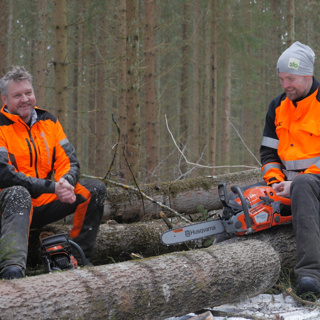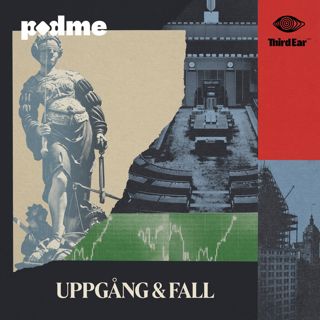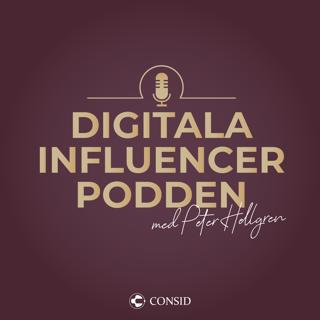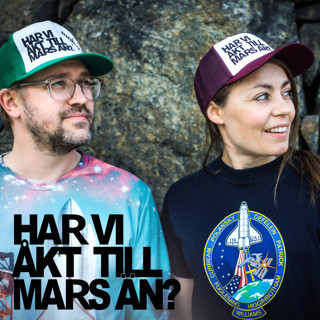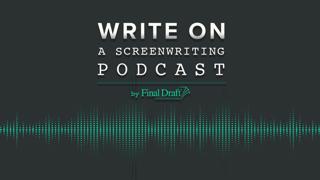
Write On: 'Cobra Kai' Showrunners Jon Hurwitz, Josh Heald and Hayden Schlossberg
"We were all six or seven years old when [the first Karate Kid movie] came out. So all of us saw it in the theater and I think for all of us, it was probably the first time any of us had seen a movie where there was such an amazing twist that happened. The whole time, we're thinking that Daniel LaRusso's not learning [karate], that he's doing all these chores for this guy and then suddenly it's, 'Wait! He's been learning karate the whole time!' So anyone who watched the movie was blown away by that moment, but when you're six or seven it's a formative memory. So it was a movie that was meaningful to all of us," says Jon Hurwitz, showrunner and executive producer of the Netflix show Cobra Kai. In this episode, I speak to all three showrunners of Cobra Kai, Jon Hurwitz, Josh Heald and Hayden Schlossberg about what the show means to them now that we're in the sixth and final season. We discuss why they thought it was imperative to tell the story from the character Johnny Lawrence's (William Zabka), point of view and they hint at the possibility of a new spinoff show – perhaps about a young Mr. Miyagi – coming soon. They also shared their advice for writing a spec script. "It's really tough to stand out. And that's what you have to figure out. In our early scripts, it was that first page – it was being R-rated and provocative and saying something that gets you noticed and stands out in the marketplace. Because if you're just writing a genre story, it's just like why?" says Josh Heald. To hear more about the sixth season of the show and their great advice for writing spec scripts, listen to the podcast.
18 Juli 202438min

Write On: 'A Family Affair' Writer Carrie Solomon
"I came up doing improv where failure is the golden standard. And in improv, if you're not failing, you're doing something wrong. I feel really lucky that that was one of my bridges into entertainment and creativity, to have such a loving relationship with failure because, boy! As a writer, your days are filled with it and rejection and killing your darlings. I think comedy and improv have taught me how wonderful failure can be and how much we can get out of it for sure," says Carrie Solomon, writer of the new Netflix romantic comedy, A Family Affair starring Nicole Kidman and Zac Ephron. In this episode, Carrie talks about working as an assistant when she first came to Hollywood, calling it a job that can be, "Thankless at times, certainly, but really rewarding in the amount of information that you can absorb." She also talks about bringing her own life experience – like being an assistant – to her storytelling. "Thematically, I think a lot of lot of the arcs in this movie are certainly my own. It's my own therapy coming to the screen, going to the page. I should probably send my therapist a Netflix., QR code to go check out the movie," Carrie says. Carrie also shares a lot of advice, including how to get your writing noticed. "For anyone who wants to make a splash or write something crazy or noticeable, write something that's crazy to you. Don't worry about what. If you yourself were entertained or wowed by an idea or you think, oh my god, that's absolutely like ass backwards crazy. Try it. I have a lot of friends that the minute they stop worrying about audiences or development execs or what people want to read, that's when they really found their voice and it clicked. I think being personal is one of the one of the quickest ways to find success." To hear more about Carrie's writing journey, listen to the podcast.
10 Juli 202439min

Write On: 'Inside Out 2' Co-Writer Dave Holstein
In this episode, I talk with Dave Holstein, co-writer of the upcoming Disney/Pixar sequel Inside Out 2, which takes us back into the mind of a now teenage Riley as she navigates a whole new crop of personified emotions, including Envy, voiced by The Bear star Ayo Edebiri, and of course, Anxiety, voiced by Stranger Things' Maya Hawke. Dave describes what it's like working with a well-oiled storytelling powerhouse like Disney/Pixar, as well as co-writing with Inside Out franchise veteran Meg LeFauve to not only recapture some of the magic of the original film but to also create some of their own.
14 Juni 202429min

Write On: 'Late Night' Host Seth Meyers
"Just a shout out to everybody who's listening who has ever written a movie. This is a true story – I was writing a movie. I had been paid to write a movie and I was writing a movie when I got Late Night. And when I got Late Night, my first thought wasn't, 'Oh my god, I'm going to have my own talk show.' My first thought was, 'Oh my god, I don't have to finish that screenplay. I'm so happy!'" says Seth Meyers, adding, "Anybody who can finish a screenplay – I have so much respect for you. It's so much harder than anything else. And that's the thing, when I watch a terrible movie, I always think, 'Shout out to whoever finished it. They got three acts. All the characters had names, they did it!'". In this episode, I talk with Emmy-winning talk show host and former SNL head writer Seth Meyers. Seth talks about his origins of becoming a comedy writer and performer, his time on SNL, what he looks for in a TV writer, and how Late Night with Seth Meyers has grown over the years as he celebrates the show's 10th anniversary. I also asked Seth about the best ways to get your voice as a writer to show through in your writing sample. He says it's difficult considering the highly competitive environment, but it comes down to making fresh choices. "The hardest thing I would have to do when I was at SNL was we would receive say, 200 packets of sketch submissions and we'd split them up amongst four of us. It was a slog – not because they were bad sketches but because we'd spent our whole year reading sketches and so you could tell when somebody was aiming to write an SNL script. But then, every now and then, sometimes it was just one line in a sketch, sometimes it was even a character's name, there would be something that would just sort of break through the noise, and you'd look at it and say, 'Oh, I don't think I've ever seen anybody make that choice before.' So I just encourage people to try to do the thing that even you haven't seen," says Seth. To hear more of what Seth Meyers has to say, listen to the podcast.
5 Juni 202429min

Write On: 'Ezra' Writer Tony Spiridakis
"From Robert De Niro, I learned not to force anything. Not to force your idea of how something should be and then go from there. Not, 'Oh, this should be funny,' or 'Oh, I'm going make you cry.' That's the wrong thing. You just need to think about the thing the character is experiencing and don't push it – have it happen. And he was obsessive with me about not trying to make anything funny and he would say to me, 'Tony, it's very funny. But I want you to see the funny happen naturally from the authenticity of it,'" says Tony Spiridakis on working on the screenplay for Ezra with Robert De Niro who stars in the film, along with Bobby Cannavale, William A. Fitzgerald, and Rose Byrne. In this episode of the Write On podcast, Spiridakis talks about how Ezra was inspired by his own journey of raising a son with autism. The film shows the very human side of parenting from the point of view of a standup comedian who loves his son desperately but doesn't know how best to help him. Part road movie, part comedy, Ezra tackles both the perils and heart-felt comedy of the father and son bond. Spiridakis also talks about getting cast as an actor in Stanley Kubrick's Full Metal Jacket, then unceremoniously getting let go from the film. He shares how he turned his disappointments as an actor into a career as a playwright, screenwriter, and director. "Okay, so the acting didn't pan out as I had hoped it would, but I'm still a storyteller and I think that's the beautiful thing about whatever it is that we gravitate towards – one superpower or another," says Tony. To find out more about writing the screenplay Ezra, listen to the podcast.
28 Maj 202438min

Write On: 'Bridgerton' Showrunner Jess Brownell
"One of the main things I've learned from Shonda [Rhimes] is to focus on what you really want to see, yourself, in a season. Not necessarily what should happen. I remember on Scandal, in the writers room, we would craft what we thought were these perfectly structured stories. And Shonda would come in and pitch something that was really wild, kind of out there and maybe didn't fit perfectly into the structure," says Jess Brownell, showrunner for Bridgerton Season 3. "Ultimately, when the show aired, that would always be the thing that Twitter would light up about. So it's taught me to work from that place first. Don't just worry about, 'Okay, what are the beats that make sense to get from A to B?,' but 'What's juicy? What do you want to see?'" On today's episode, Jess talks about the friends-to-lovers storyline with Penelope Featherington (Nicola Coughlin), and Colin Bridgerton (Luke Newton), why the show leaned into super fun rom-com tropes this season and why sex scenes always have to be character-driven. Jess also shared this advice for writing period drama: "My advice for approaching a period piece would be approach it the same way you would a modern piece. Focus on: What are you trying to say that's new? And how are modern audiences going to connect with these characters? You can always go back and do a regency pass at the end. I often write a scene just like I would for a modern-day show and go back and fix the dialogue later," she says. To hear more, listen to the podcast.
10 Maj 202428min

Write On: 'Challengers' Writer Justin Kuritzkes
"Tennis is an amazing sport to think about a love triangle because it's so deeply charged erotically," says Justin Kuritzkes, screenwriter for the new film Challengers, starring Zendaya. "Tennis is a game that's so steeped in repression, but also in wild abandon. There's all these rigid rules and prescriptions of movement and boxes that the ball has to fall into. It's all so tightly organized and yet, once the ball is in play, physics takes over and it's wild chaos. You see these two people responding to each other in an almost instinctual and subconscious way. So, it felt like there was a lot of energy in tennis that was exciting to me cinematically." In this episode of the Write On podcast, Justin talks about using tennis as a metaphor for relationships, the complicated choices his characters make, and the challenges going from playwright to screenwriter. "It's really useful to have some knowledge of yourself as a dramatist or as a storyteller before you go into writing a screenplay because screenplays are so unforgiving. If you've already been working as a playwright or novelist, you've got an advantage there. The main thing I was focusing on writing Challengers was that I wanted to feel like I could see the movie on the page because it was a movie I really wanted to watch…You can't tell if something is good as you're writing it. You can't tell if something is going to be a safe bet for anybody to make. All you can tell is if the movie is alive to you. If that's true, there is a chance that the movie will be alive on the page for other people, to the point where they'll want to make it with you," he says. To hear more from Justin, listen to the podcast.
23 Apr 202433min

Write On: 'The First Omen' Writers Arkasha Stevenson and Tim Smith
"We had to go back to the ratings board five times. It was a long journey. You have to laugh sometimes, because we had some really grotesque imagery in our film. We even have a demon phallus in the film and nobody was worried about that. It was really the image of the vagina that was getting us that rating," says Arkasha Stevenson, director, and co-screenwriter for The First Omen, about initially getting an NC17 rating from the Motion Picture Association. After much back and forth, the film is now rated R. The First Omen was written by Tim Smith and Arkasha Stevenson with Stevenson also directing. The film is a prequel to the classic horror film The Omen (1976) and stays true to the narrative that brings Damian, the antichrist, into the world. But keeping faithful to the original film proved to be challenging in a number of ways. "Because we grew up on The Omen," says Stevenson, "it has such a special place in our hearts. We knew that it has such a special place every horror fan's heart, too… We didn't want to tarnish anything, so trying to find a balance where we were trying to create something new, and have our own world, and characters and messages within that, but also pay homage to the original omen, and also have tie-ins and callbacks – it was interesting to try and figure out how to have a conversation with the original film," she says. We also discuss how the film explores the theme of control over women's bodies and how the current political climate factored into the story considering abortion is such a hot-button issue. To hear more about the writing of the film and how Stevenson and Smith came to the project, listen to the podcast.
10 Apr 202436min










